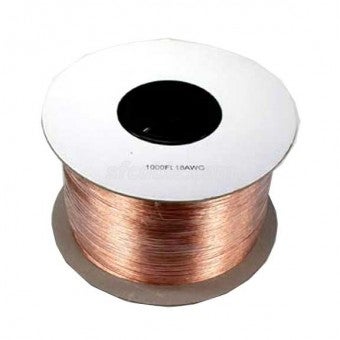
The right kind of speaker that produces quality sound is something that all music lovers or serial TV watchers desire. It goes without saying that for the right kind of speaker, the right wiring is also necessary. The sound quality of a system is hugely dependent on the type of speaker wire used.
A wire gauge/gage is a measurement of the size of the wire in terms of diameter or in terms of cross-sectional area. Determining the largeness of wire is important for ascertaining the amount of electricity the wire can carry safely and the electrical resistance the it has. As most system does not come with their own set of speaker wire, choosing the right one amongst multiple options can be quite bewildering.
American Wire gage (AWG) and Standard Wire gage (SWG) are two types of gauges which are most popular. AWG speaker wire can be
good option for those who are looking for least amount of power loss and better speaker damping. AWG is an arrangement of assigning numerical value to wire diameter where thicker the wire, lower is the gauge number.
Long runs of smaller wire intensify resistance to electron flow which makes up the total resistance of the speaker system. So, a 12 gauge speaker wire has bigger diameter than a 28 gauge speaker wire and hence much more efficient than a 22 gauge speaker wire. Thick wires are less resistive. which means that thicker wire with lower gauge actually provides better capacity to pass amplified audio signal.
That is why main criteria while choosing speaker wire by the audiophiles should be resistance and resistance alone. Two very important things, insertion loss and damping factor are actually dependent upon the cable resistance. The most popular speaker wire available in the market ranges from 12 gauge to 16 gauge. Like all other cables, length also matter for speaker wire.
Consumers can buy the bulk speaker wire or opt for shorter wires according to their need. Preferably, the length of wire going to the three front speakers should be the same. Longer wire means greater resistance, so it is always advisable to keep the length of the wire as minimum as possible, though not too short so that it can not reach the equipment. After all these considerations,
"The bottom line of this article could be deduced that while buying loud speaker wire, the focus should be more on the resistive losses hence it should be carefully chosen"
